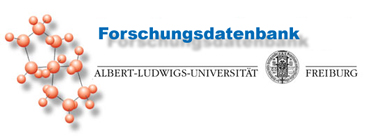| [Zurück zum Forschungsbericht] |
 |

Stakeholders‘ Participation in the Spatial Plan Creation for Nature Park Medvednica
Projektbeschreibung:This research aims to assess the influence of participatory processes on spatial planning of Nature Park Medvednica, a mountainous protected area adjacent to Zagreb, the capital city of Croatia, which tries to hold on to the pressure of the urbanization. Because of the inexistence of spatial plan which is required with the Croatian laws; its area was significantly decreased in 2008. There are already two draft spatial plans made for Nature Park Medvednica but no one actually was brought in the legal system. They were both rejected after the public forums displays. The study will be conducted in a framework of stakeholder analysis, for which a series of in-depth interviews with the stakeholders will be performed, and the data of which will be analyzed in a software appropriate for discourse analysis, probably MAXQDA. The data gained will be regarded upon within the concepts of the social exchange theory, Blau, (1964). The results of the research are expected to provide a detailed insight into stakeholders and their influence on the respective spatial planning process. My main research question is: How do the participatory processes influence the creation of spatial plan for NP Medvednica? Type of research is planned to be applied research, and the purpose of the research is going to be descriptive – explanatory. The time dimension of the research would be cross-sectional, with direction of theorizing on deductive approach. The time span of research is planned to be three years. Unit of analysis would be individuals and groups of stakeholders involved in the Medvednica‘s spatial planning process, the once who were part of the participation process and also the ones that were neglected in that process. The level of stakeholder‘s participation may be accessed in this research using the framework of “ladder of participation” (Arnstein, 1969), which has 8 steps: Manipulation, Therapy, Informing, Consultation, Placation, Partnership, Delegated power and Citizen Control. The respective level of participation is a reflection of stakeholders interest to participate, and also partly of its power. In order to assess the power relations of stakeholders in more detail, the “Power Tools” (“Stakeholder Power Analysis”, “Stakeholder Power Mapping” and “The Four Rs”) of the International Institute for Environment and Development are planned to be used.Projektlaufzeit:
Ansprechpartner: Natasa Lovric
Email: lovric.natasa@yahoo.com
Projektbeginn: 01.09.2010Projektleitung:
Projektende: 31.01.2015
Natasa LovricFinanzierung:
Albert-Ludwigs-Universität Freiburg
Professur für Landespflege
Prof. Dr. Konold
Tennenbacher Str. 4
79106 Freiburg
Telefon: +49 761 203-3635
Fax: +49 761 203-3638
Email: lpflege@landespflege.uni-freiburg de
http://www.landespflege-freiburg.de
- EFI-FOPER project PhD support program
Aktueller Forschungsbericht